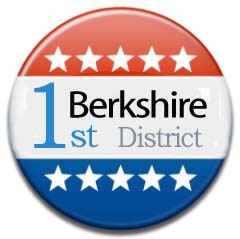| Home | About | Archives | RSS Feed |

MacDonald Explains Strategies for Cost-Cutting, Collaboration
 |
ADAMS, Mass. — Edward MacDonald , candidate for state representative in the 1st Berkshire District, released a statement Thursday that explained several key ways to reduce budgets and work collaboratively with other communities:
“My experience as town administrator in Chester can serve as a good example of how a city or town can address its own financial and other problems, within the framework provided by existing state law. When I started in Chester in 2009 the town was having severe financial difficulties. An audit determined that the town had an approximate deficit of just under $380,000, the tax rate was still not set six months after most other towns had set their tax rates, the then-town accountant had made errors that concealed other problems, and the financial picture looked bleak.
Our first step was to achieve efficiencies within town government, by trimming hours of operation, reducing utility usage and ensuring all employees were working efficiently and effectively. The selectmen then decided to ask the town if it wished to raise its own taxes through a Proposition 2 ½ override. Chester is not a wealthy town and does not have a strong history of passing overrides, so the voters declined, and we didn’t pursue the option of adopting local lodging or meals taxes because the town has too few of these establishments to make it worthwhile. We then had to make the hard choices on how to further cut the budget. We laid off employees, made other cutbacks, found a less expensive town accountant who could properly perform the accounting functions, and were finally able to cut the budget and eliminate the $380,000 deficit.
Chester, like many other cities and towns in the Bay State, isn’t out of the woods yet. Additional state aid cuts are looming and operating a municipal government is not becoming less expensive. Some items, such as employee health insurance, fuel and utility costs and road maintenance materials continue to increase in cost. In the face of all these challenges, I am committed to helping municipalities thrive.
Working with a neighboring community is not new to Massachusetts, but the strong emphasis on more formal regional arrangements is new. During my time in Chester I have assisted in creating an arrangement with Becket for lower-cost vocational education transportation and I have worked with various regional agencies on infrastructure improvements and regional waste disposal. As a state representative, I will play a key role in facilitating such arrangements between and among the cities and towns in the 1st Berkshire District. We can do this without giving up our local community identities, a source of pride for most of our citizens. And by doing so, we turn our tax dollars into smart dollars, stretching our limited resources in sensible ways that maximize their spending power, without putting an undue burden on our property taxpayers.
The other important step in helping cities and towns is the Municipal Relief Act. Passed by both the state House and Senate and subject only to a joint conference committee and final approval by the legislature and governor, the new law will allow cities and towns to cut costs by capping municipal pensions at $125,000 per year, offering early retirement incentives and tax amnesty programs and using email for tax billing. It would also allow school districts to share school superintendents and cities and towns to create joint tax assessing agreements. Other provisions would extend local pension funding schedules, increase the threshold at which cities and towns must require bonds by private contractors working for the municipalities, and establish many other measures that will provide financial relief to cities and towns.
As your state representative, I will work with other legislators who want to assist municipalities by helping to pass such additional measures and by reducing expensive burdens imposed by the state through laws and regulations that unnecessarily constrain municipal operations. I would also work to revive the dormant Municipal Incentive Grant Program and the Circuit Rider Program. The MIG program provided small grants to cities and towns to allow them to try innovative solutions to common municipal problems and the Circuit Rider Program provided financial incentives to very small towns to hire professional administrators. Both programs were very successful in the past, but were foolishly eliminated as part of prior state budgets cuts. These programs cost relatively little for the state, but provided significant boosts to cities and towns.
Cities and towns can only go so far in helping themselves, both in the revenues they can raise and by adopting efficient and effective practices that can save them and the property taxpayer money. After that, it’s up to the state legislature to provide additional tools for success and to eliminate legal barriers to good governance at the local level. If cities and towns are to survive these difficult times, they need all the help they can get, through utilizing best practices to achieve efficiencies, implementing promising recommendations of the regionalization commission, taking advantage of new measures in the Municipal Relief Act and by insisting on additional programs and assistance from a state government that too often treats its municipalities like after-thoughts.
The government that is closest to us must be strong and vibrant and provide the critical services that our families need to thrive, because our communities are where we live, work, and play and educate our children. As your state representative for the 1st Berkshire District, there will be no stronger an advocate for the cities and towns of Massachusetts. I ask for your vote on September 14."
| Tags: MacDonald |


